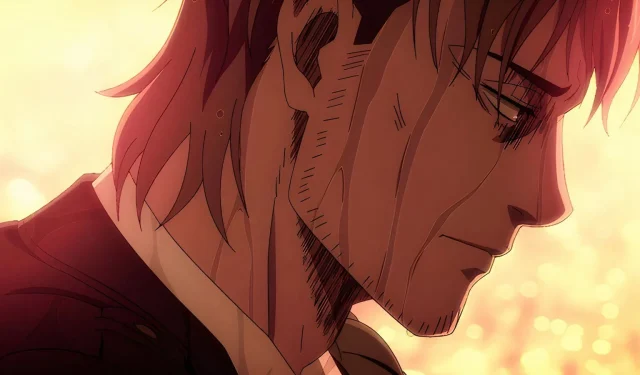
Main Insights
- Initially driven by personal goals, Jean evolves into a respected leader through his experiences and relationships.
- Jean’s growth is shaped by Marco, Eren, and Mikasa, illustrating how trauma and responsibility can transform a person.
- In Season 4, Jean emerges as a mature and balanced leader, adeptly navigating challenging moral quandaries and effectively guiding the Scout Regiment.
The universe of Attack on Titan is teeming with intense confrontations, intricate characters, and profound themes. This narrative unfolds in a realm where humanity battles colossal beings known as Titans, delving deeply into characters’ struggles, their inner conflicts, and the decisions made amidst tremendous challenges. The evolution of characters often reflects the influence of trauma, a sense of duty, and the essence of leadership. One notable character is Jean Kirstein, who begins with seemingly selfish intentions but gradually grows into a pivotal figure.
Jean’s journey exemplifies character development shaped by external events and his inner turmoil. Initially drawn to the safer existence behind the walls, Jean’s perspective shifts as he encounters diverse people and situations that challenge his worldview. Through both trials and friendships, he transforms into not just a reliable soldier but a noteworthy leader, earning the respect of his peers for his courage, insight, and empathy.
Jean’s Early Goals
His Desire to Enlist
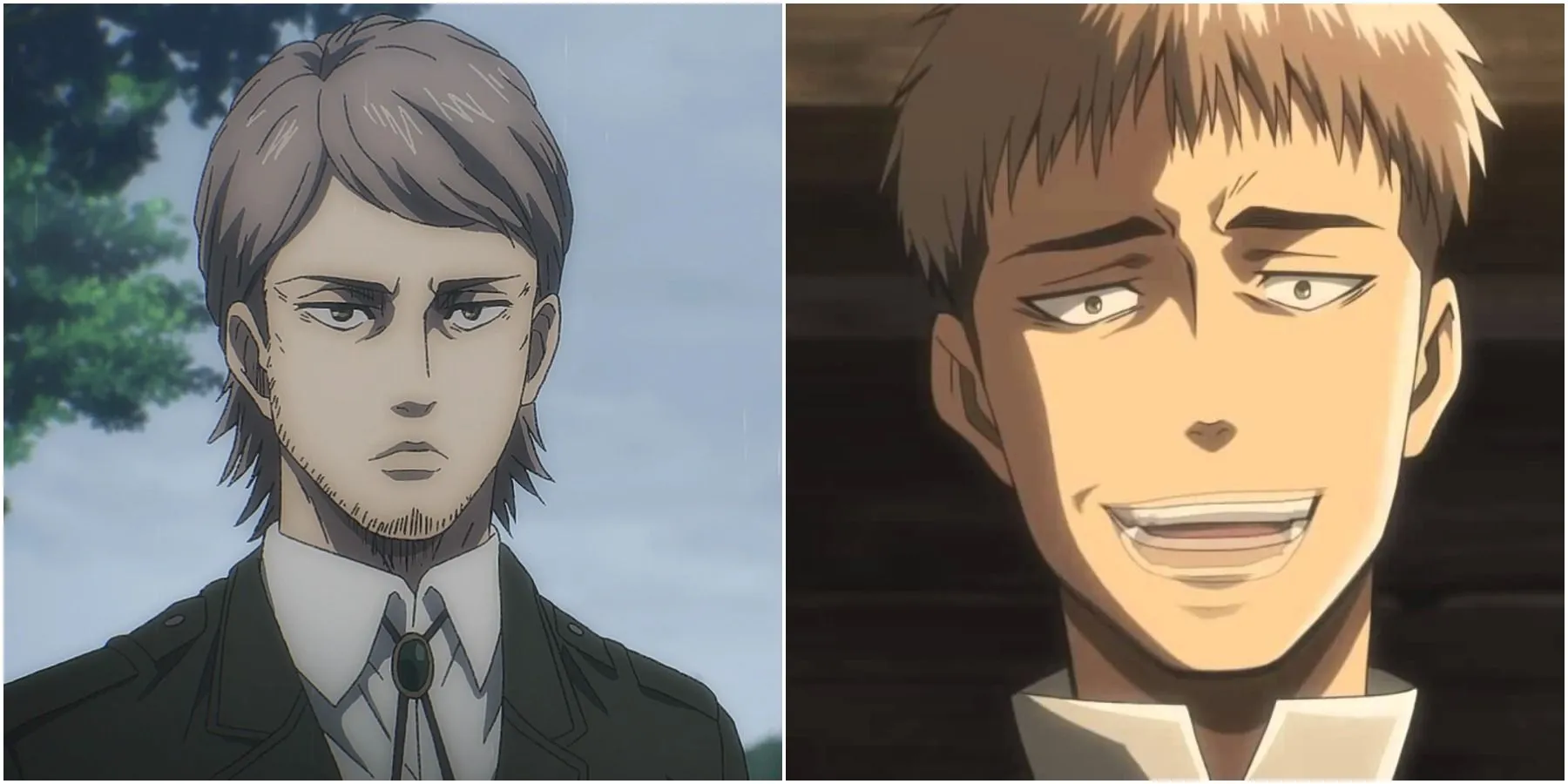
Jean’s character is introduced with practical, almost self-serving aspirations: his goal is to join the Military Police for a secure position within the inner walls. Unlike many of his contemporaries, who are driven by revenge, honor, or strong ideals, Jean’s initial ambitions tend to appear less heroic, as they revolve around personal safety. However, his pragmatic approach sets him apart; who wouldn’t desire a secure life in the perilous world of Attack on Titan? He views the military not as a vocation but as an escape from the horrors lurking outside the walls.
At this point, Jean has little interest in becoming a hero or engaging Titans in battle. His primary goal is survival, achieved by staying as far from danger as possible. While his self-interest may come off as cynical, it’s a sentiment many can relate to, providing a benchmark for measuring his character growth.
The Influence of Marco, Eren, and Mikasa
The People Who Changed His Path
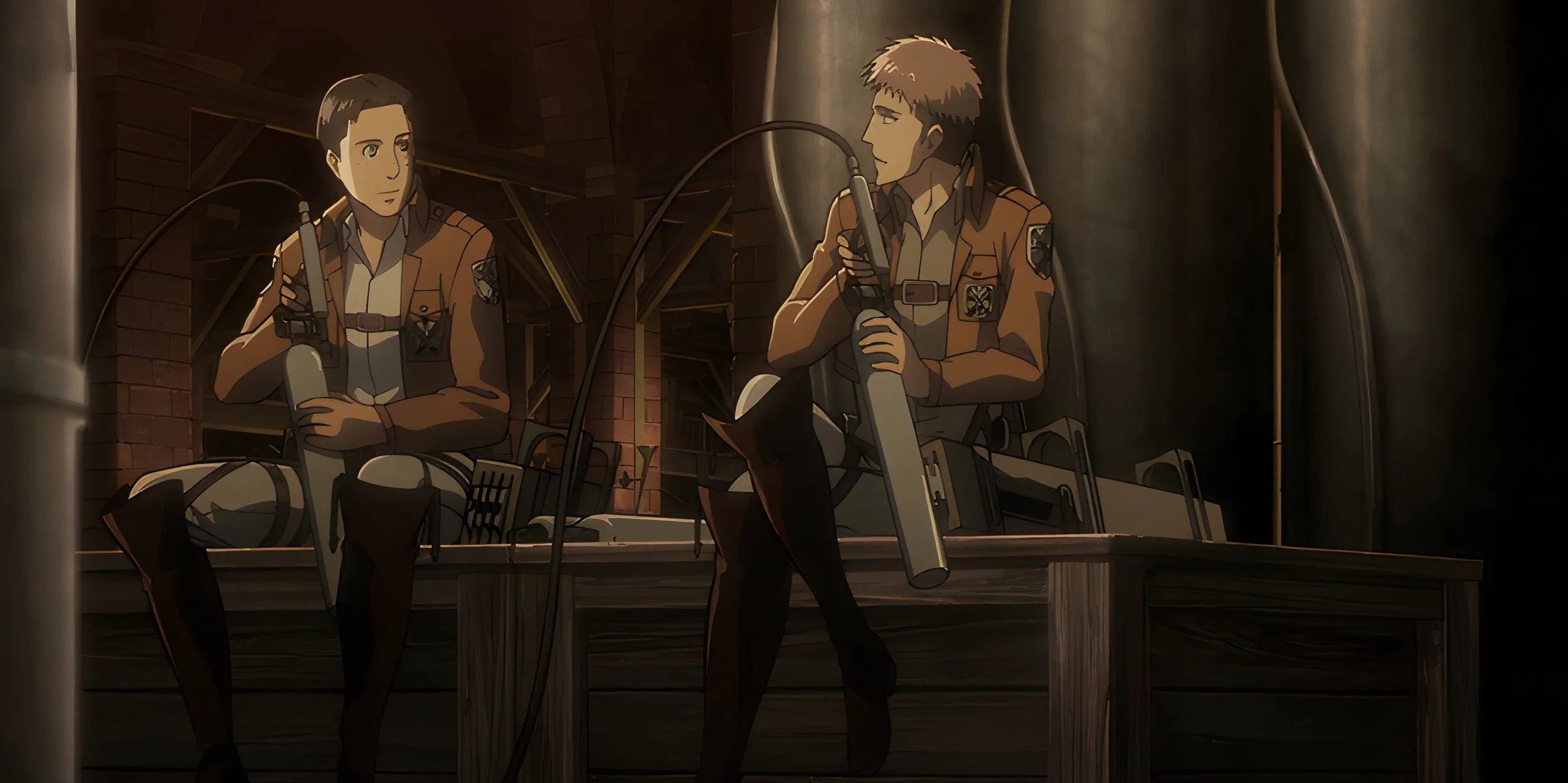
Jean’s evolution is significantly shaped by his fellow cadets, particularly Marco Bodt, who encourages him to embrace his latent leadership qualities. Marco instills confidence in Jean, prompting him to think beyond immediate self-interest towards a broader purpose. This encouragement effectively nudges Jean to confront his insecurities and embrace a sense of responsibility for others.
“The Future Of Humanity Will Be Doomed. Having Said That, I’m Not About To Sit Around While We All Get Slaughtered.”- Jean Kirstein
Interactions with strong-willed characters like Eren and Mikasa also compel Jean to reassess his priorities. Eren’s boldness in facing the Titans and Mikasa’s unwavering loyalty challenge Jean’s more cautious nature, leading him to grasp that his role encompasses more than mere self-preservation. These relationships spark internal conflict regarding duty and the essence of bravery.
Transition to Leadership
Leading the Fight Against the Titans
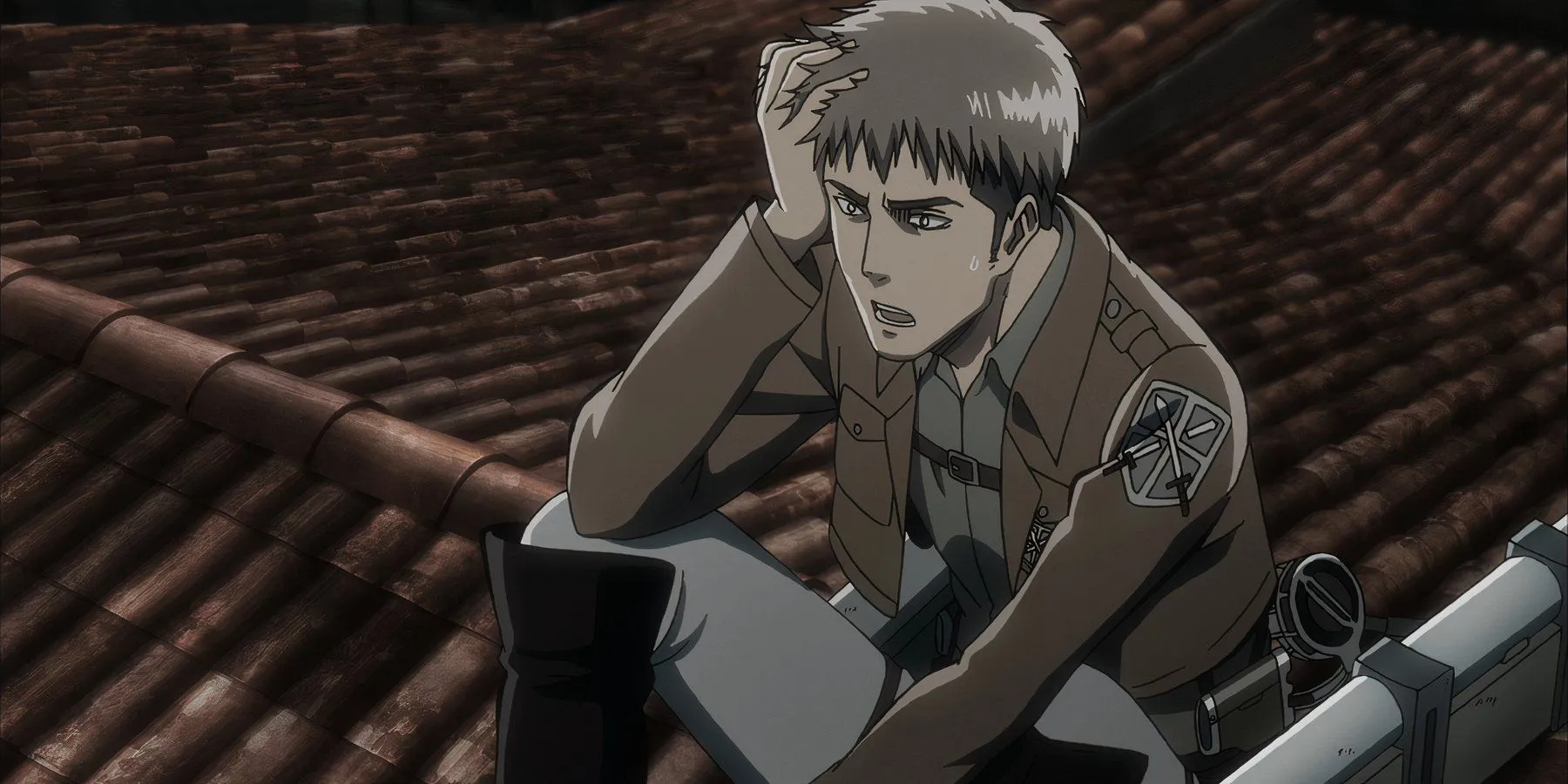
A pivotal moment occurs when Jean inadvertently takes charge of a group of soldiers during a chaotic Titan assault. His assumption of leadership is not premeditated; rather, it emerges from innate qualities revealed in crisis. In the midst of chaos, Jean displays calmness, composure, and earns the trust of his comrades, who look to him for guidance in that perilous moment.
This experience serves as an initial test of Jean’s potential. He risks his safety to ensure the survival of his comrades, truly making an impact. The willingness of fellow soldiers to follow him, despite his initial reservations about being a leader, highlights the influence he wields. His response during this critical instance crystallizes who he can become when faced with high-stakes pressure.
Battling His Inner Demons
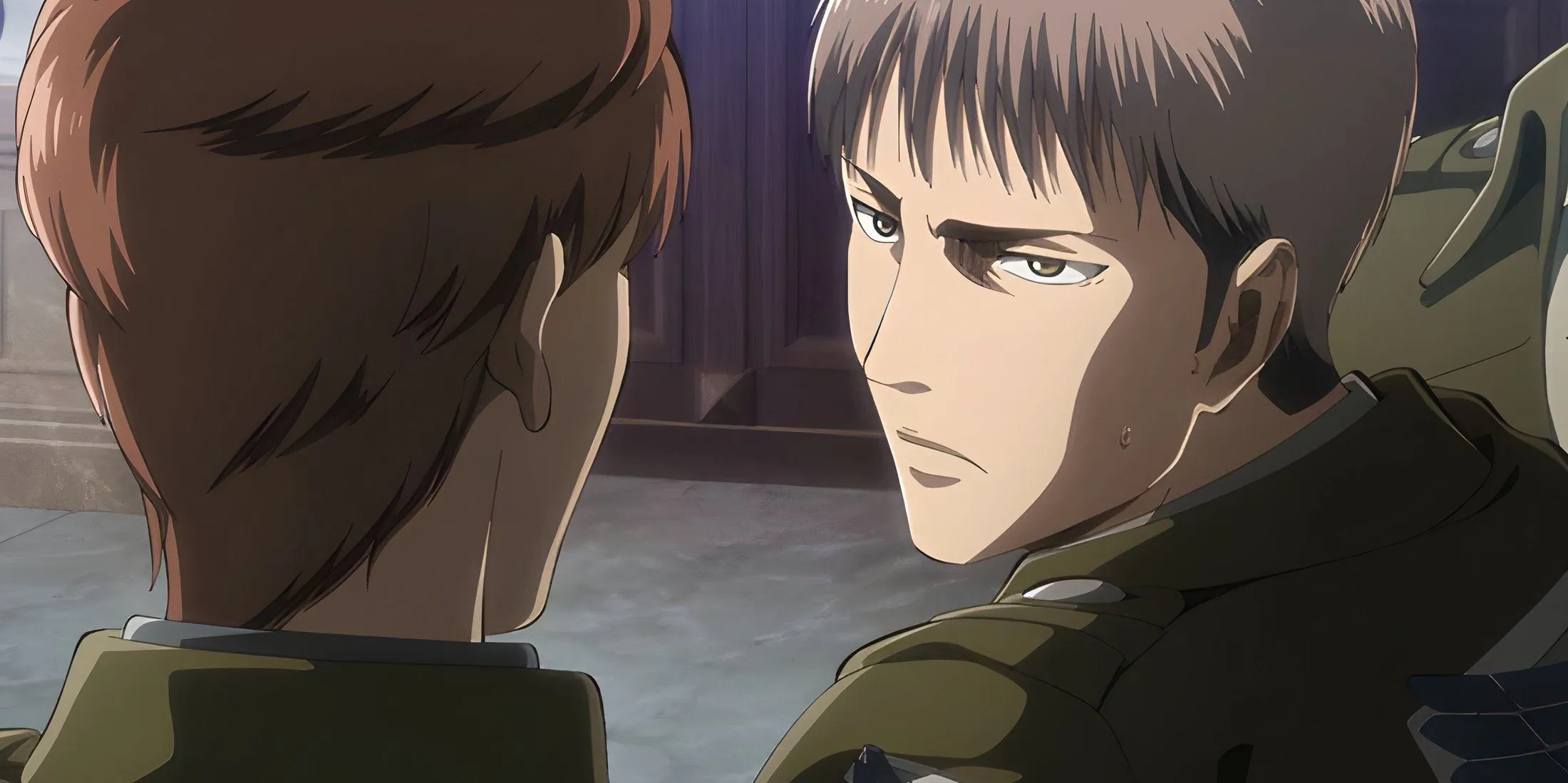
Jean’s character development takes a profound turn in Season 2, where he faces greater leadership responsibilities alongside personal challenges that test his previously established perceptions of his military role. The trials during this season are particularly harrowing, with the Scouts enduring severe losses and shocking discoveries about the Titans. While Jean’s competence on the battlefield flourishes, he wrestles with fears and self-doubt, gradually understanding the weight of responsibility inherent in leadership. This season solidifies his dedication to his team and commitment to the cause, transforming his leadership into something more purposeful.
As he navigates life-and-death situations, Jean grows increasingly protective of his comrades. He recognizes that their only chance of survival in a ruthless world lies in unity, prompting him to embrace his duties more earnestly. His practical mindset combined with newfound camaraderie positions him as a stronger, more reliable ally.
Facing Human Adversaries
Grappling with Moral Dilemmas
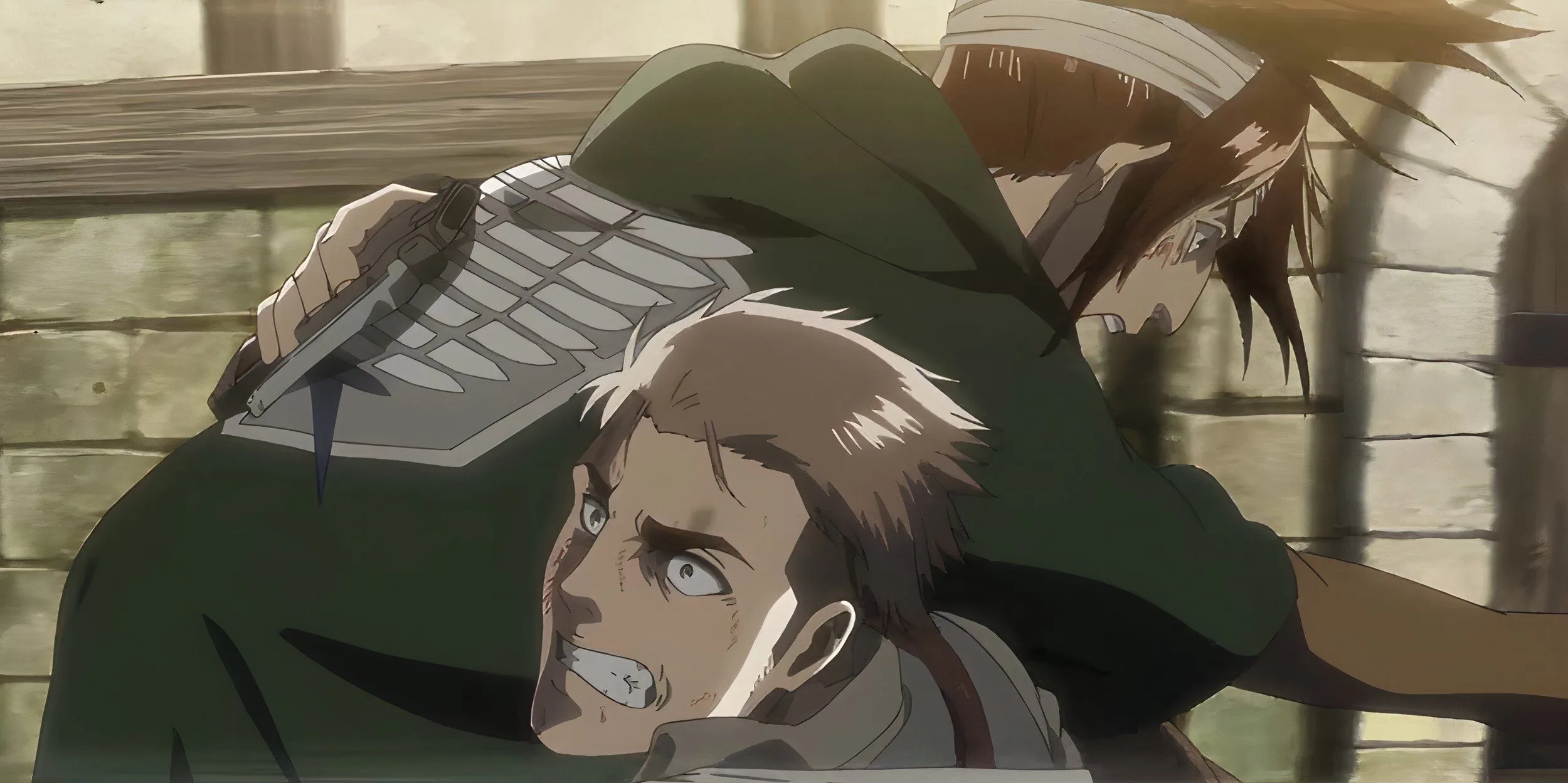
The major turning point for Jean occurs in Season 3, where the Scouts encounter a new type of foe: humans. This shift profoundly affects his moral compass. Initially reluctant to engage human adversaries, he struggles to reconcile his role as a soldier with his personal values. Despite his enhanced skills and fighting abilities, Jean’s humanity presents an internal conflict when he’s forced to confront opponents with their own motives and fears.
“People Keep Telling Me That Life Goes On. But to Me, That’s The Saddest Part.”- Jean Kirstein
A defining moment unfolds when Jean must quickly decide during a confrontation with Kenny Ackerman’s highly skilled squad. Through Levi’s guidance, he learns that victory may require painful choices. This realization forces Jean to confront the harsh truth that protecting his friends and the future for humanity may necessitate taking aggressive action against anyone posing a threat—even if they are fellow humans. Through these encounters, Jean forges a blend of compassion with pragmatic realism essential for survival. His transformation from a self-preservationist to a reluctant yet capable leader forms one of the most engaging character arcs in the series.
Assuming Leadership Amid Global Crises
Evolving into a Mature Leader
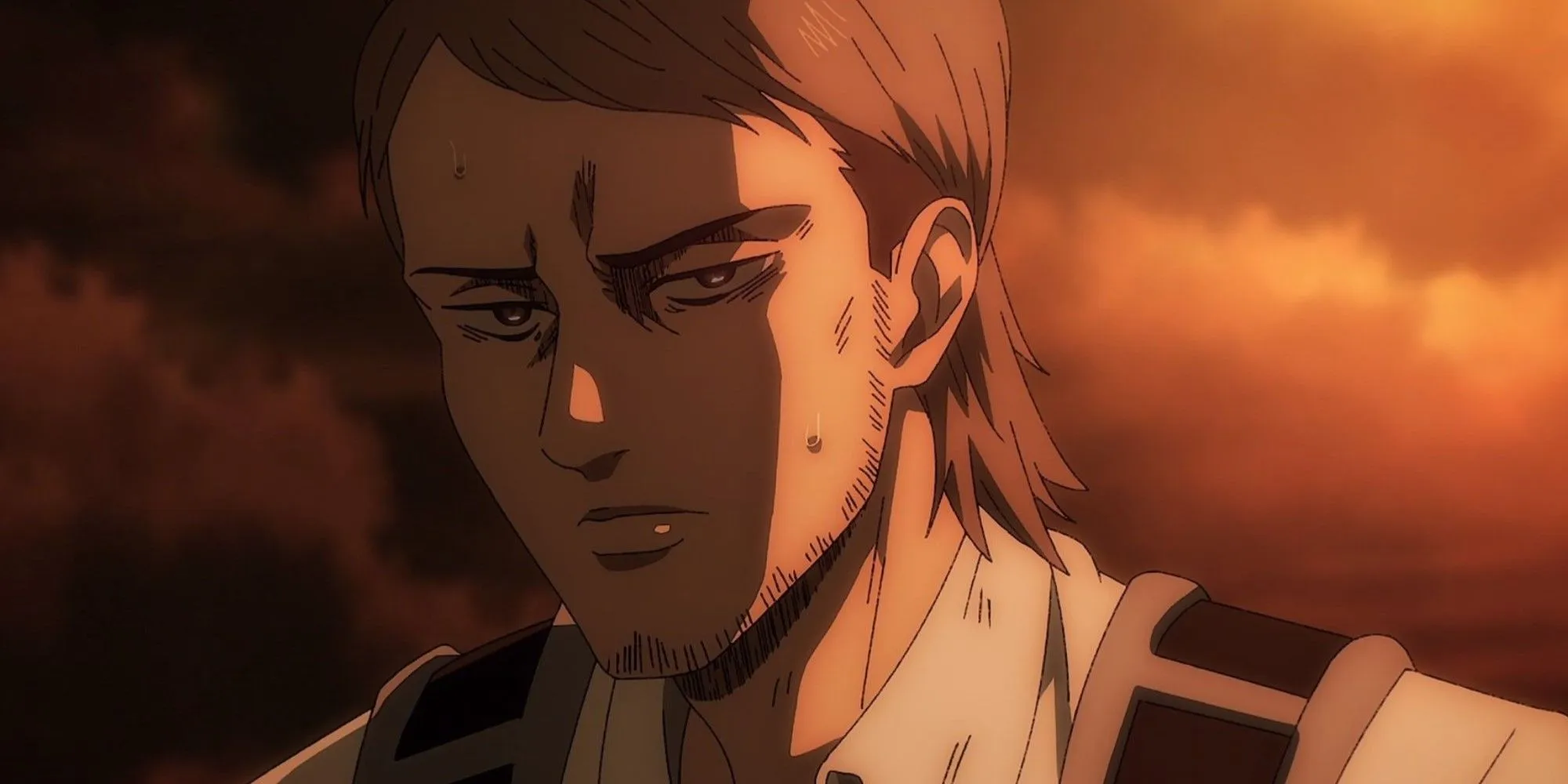
By the onset of Season 4, Jean has transformed from the self-serving recruit he once was into a reflective and balanced leader. As the conflict escalates to a global scale, Jean’s role expands beyond that of a mere soldier; he must now navigate a landscape filled with ethical dilemmas and decisions that impact both his team and humanity itself. His style of leadership skillfully balances empathy and pragmatic necessity, guiding the Scout Regiment through morally complex challenges.
“I Don’t Really Want To Meet A Disappointing End With Someone Burning My Bones Without Knowing Who They Belonged To.”- Jean Kirstein
During a fierce battle against the Marleyans, Jean confronts the painful reality of leading his comrades against former mentors, including their long-held commander, Dot Pixis, who has been transformed into a Titan. Despite his emotional turmoil, Jean understands the necessity of taking decisive action to alleviate suffering and protect his team. His composed leadership amidst this harrowing experience illustrates his growth—the balance of emotional weight and strategic clarity enables his team to respond effectively.
These critical decisions test Jean’s core values and principles. As he assumes a crucial role within the coalition, his balanced approach repeatedly serves to unify and motivate the group, solidifying his status as a key figure due to the respect he commands through empathy and understanding.
Jean’s Place in the Narrative
The Effect of His Leadership on the Scouts and Humanity
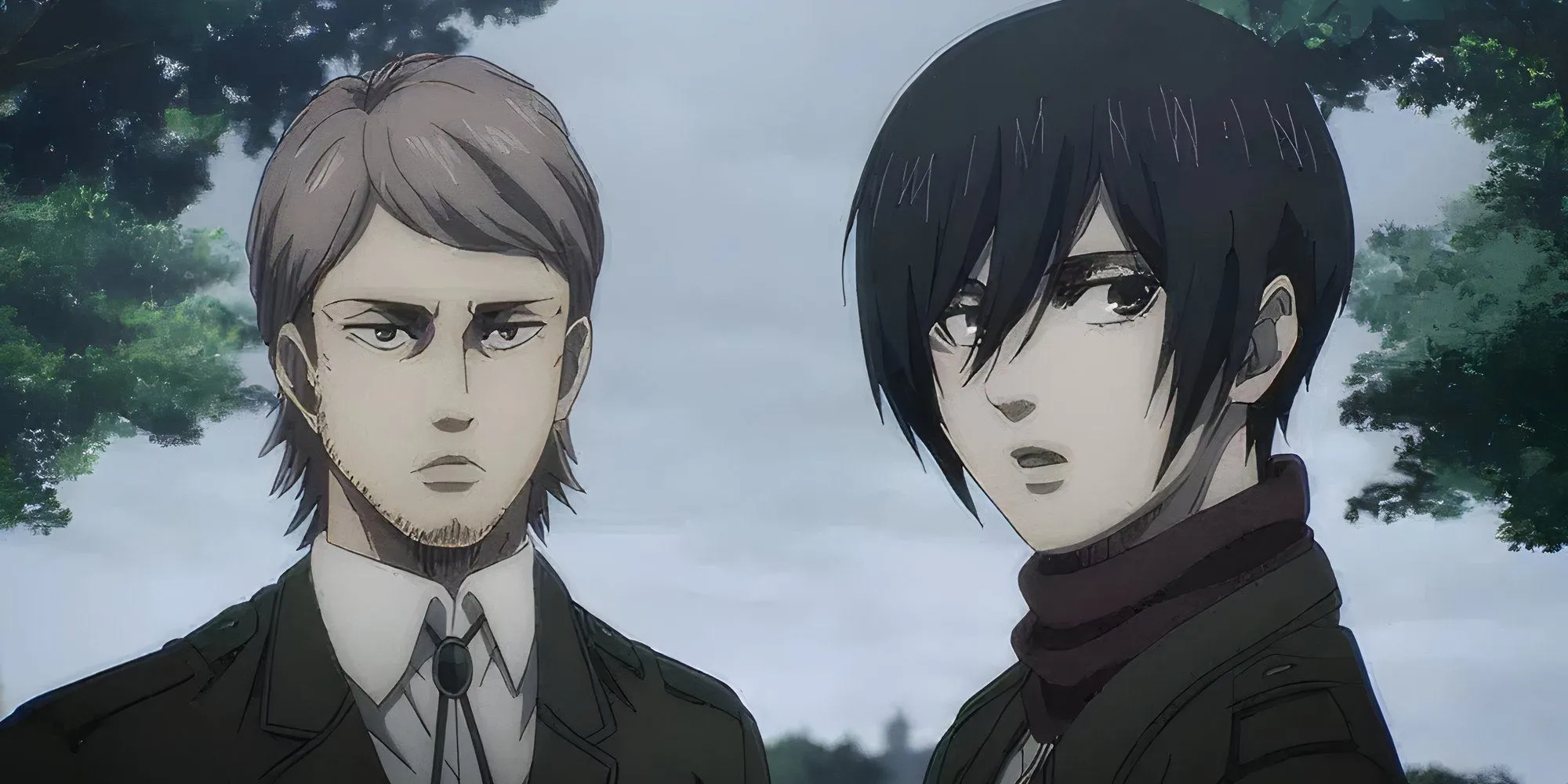
Jean’s evolution from a self-serving individual to a leader encapsulates the overarching themes of growth stemming from adversity within the series. His journey conveys a message that transcend winning battles; he embodies the transformative potential inherent in each individual. Surmounting his fears and biases underscores the necessity of adaptability, compassion, and resilience in a tumultuous world.
As the leader of the Scout Regiment, Jean cultivates team cohesion and morale while confronting increasingly dire challenges. His narrative illustrates that true leadership embodies not born heroism or fearlessness, but rather a commitment to grow, adapt, and prioritize the needs of others ahead of oneself. Jean’s character arc markedly enhances the series, deepening its foundational themes of survival, sacrifice, and the human spirit.
The journey of Jean throughout Attack on Titan exemplifies how experiences, mentorship, and introspection play crucial roles in shaping leadership. From humble beginnings to a significant role within the Scout Regiment, Jean’s arc highlights one of the series’ strongest elements: a compelling character evolution grounded in realism and human values.




Leave a Reply